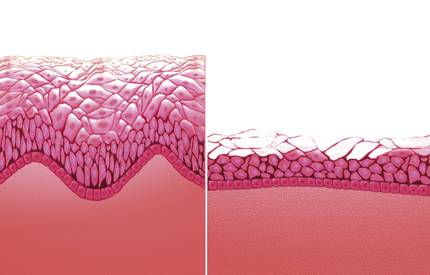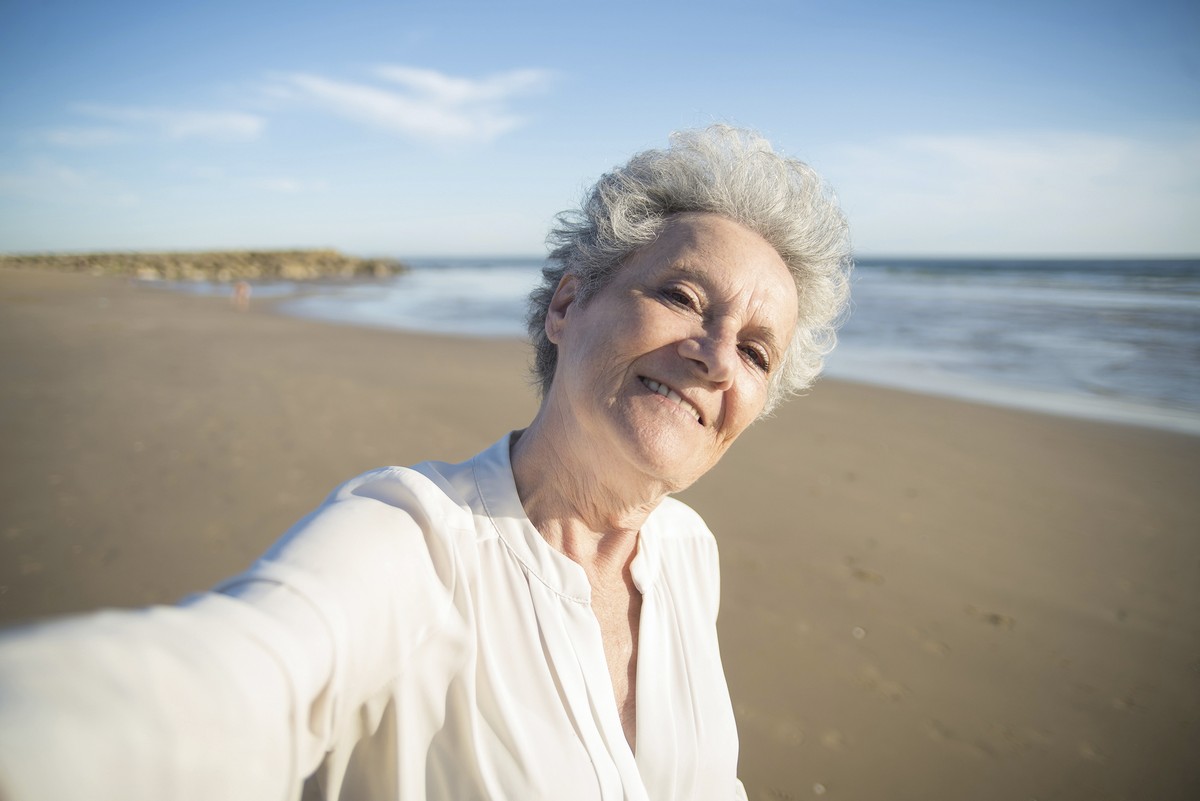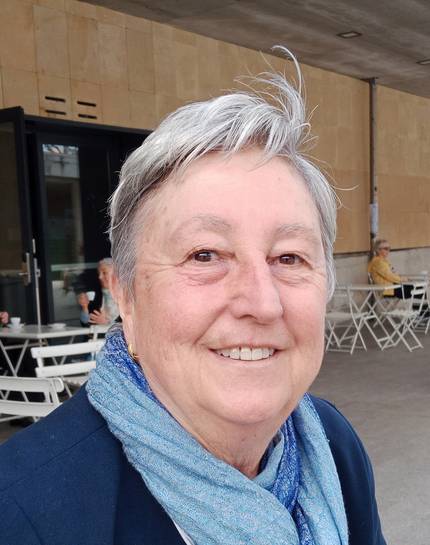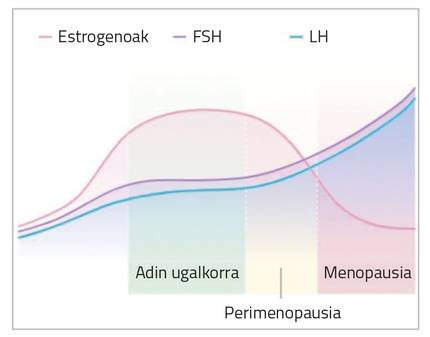With menopause as a whole
2023/06/01 Galarraga Aiestaran, Ana - Elhuyar Zientzia Iturria: Elhuyar aldizkaria
“Normalizing menopause.” This was the title of the article published last year by a group of women gynecologists and psychologists in the British Medical Journal. In this work he warned of the damage caused by stigma, ignorance or misinformation about menopause. To cope with all this, and precisely to normalize menopause, gynecologist Inma Vila Mendiburu and physiotherapist Juncal Alzugaray Zurimendi have worked and worked.

Inma Vila Mendiburu, currently retired, has worked for years in the gynecology consultation and has been a professor at the University of the Basque Country. It says it is important to note that menopause is a physiological phenomenon, but that in addition to its biological dimension it also has its psychological and social dimension.
In this sense, Vila believes that, in general, information on the biological aspect is sufficiently widespread in society, especially in women. “When menopause comes, most women know what they can expect and if symptoms greatly influence their well-being, they seek medical attention. The same is not true of the social aspect. It is still clandestinely worn and, for example, in the workplace it is not taken into account, such as breastfeeding or now menstruation. That is, it is not authorized when at some point the symptoms cause incapacity for work. There is great psychic ignorance,” he adds.
Therefore, Vila believes that more complete information would be necessary, as well as studies investigating these other aspects to, from them, take measures or design guidelines.
In another case, menopause has a precise definition, which occurs one year after the last month. The disappearance of menopause is therefore a reference characteristic of menopause that occurs at a mean age of 50-51 years. But there are also other physiological changes. Some appear at the same time and others appear over time. “It’s important to know them beforehand to prevent them and make them lighter,” Vila warns.
Physical and mental changes
He explains that the rule goes away because the ovaries lose their ability to produce estrogen. “This hormone change affects the whole body, such as hormone dance in adolescence.” The changes observed immediately include hot flashes and sweating. “There are many women who suffer from them and many who are very unwell. However, it is true that there is a great difference between women and others, both in the intensity of the symptoms and in the experiences.”
Other changes are seen later such as loss of elasticity of the skin and atrophy and drying of the vagina. “This sometimes causes pain or discomfort in penetration, burning sensation when urinating, itching…”, he says.
In addition, after menopause, the risk of cardiovascular disease increases progressively: “Before menopause, women have a much lower heart rate than men. Then comes an age when risk equals.”
Menopause also manifests in the bones. At first there is a noticeable loss of bone mass, which will then decrease. “Thus, in older women, the risk of bone fractures is high.”
As Vila stressed at the beginning, the symptoms are not only physical: “Psychically, some women suffer from depression and insomnia. Insomnia is often related to hot flashes and sweating. In addition, irritability and mood swings are more frequent.” However, it adds a nuance: “All of these symptoms depend largely on the person. The effect relationship occurs less clearly, for example between estrogen reduction and the risk of depression. There may be a relationship, but more factors influence depression.”

Something similar happens with Vila's phrase in her sexual relations: “Hormones can have some effect on sexual desire, but estrogen deficiency has not been shown to greatly influence desire. There are many more factors, personal sex biography, each one’s relationship with their partner… Vaginal atrophy can influence penetration, such as pain or discomfort. And this can make some do not want to have sex, at least with penetration, but more than menopause itself are factors that influence it.”
The experiences and views of menopause are not universal, but are conditioned by cultural, social and biological factors.
Relieve symptoms
Changes such as increased blood, frequency or irregularity occur during menstruation before menopause. Vila says that in these cases there are women who go to the consultation. “It’s a good time to learn and talk about prevention.”
One of the questions raised by the question is hormone therapy: “It consists of donating coins that no longer produce ovaries. I mean, they're not hormones or something strange. The goal of the Patient Care Service is to prolong for a while the effect of hormones to relieve symptoms when they have a major influence on well-being.”
He states that in the last 20 years the number of substitutive hormones taken has decreased considerably. “A couple of decades ago hormone therapy was widespread, not to relieve symptoms, but for prevention and, to some extent, to maintain youth (wrinkles…). Then there were studies that related it to breast cancer and, although they later refused, a great deal of alarmism emerged and those who suffered from menopause began to give up treatment,” he explains.
In any case, the decrease is noticeable, since over 20 years ago 20% of people suffering from menopause were taking hormone therapy versus the current 4%. “But it is still suitable for relieving symptoms when needed, even in premature menopause.”
However, it insists that, like any other treatment, hormone therapy should be indivisible and in each case the benefits and risks should be analysed. “Contraindications should be considered, for example in tumours with hormonal addiction or thromboembolic diseases. But for a healthy woman, if she does not have risk factors and has symptoms that affect her quality of life, it may be appropriate.”
He also mentions other treatments: “Care must be taken with the treatment of vaginal atrophy with estrogen creams, which are very useful for those who feel the penetrations. There are also phytoestrogens in plants that have a much lower effect than hormonal treatments but that can help symptoms".
Living longer, living better
There has been an increase in the supply of products to alleviate the symptoms of menopause and, in general, those related to menopause. This is due (apart from the interests of industry) to the prolongation of life after menopause.
Says Vila: ‘XX. In the early 20th century, the life expectancy of females was 50 years, now around 86 years. This means that women today, after menopause, still have more than a third of their lives to live. And they want to have a good quality of life. At the same time, the social vision of the future has changed’.
In the past, the traditional role of women was family care. The arrival of menopause often coincided with the emancipation of daughters and sons, which sometimes implied the loss of their social function. It was not surprising, therefore, that the vision of the future was not very positive and that the experience of menopause was psychically bad. On the contrary, those who had their own life project also had, psychologically, better experiences. “It has now changed socially and most women do not depend on that traditional role, although they still affect a lot psychically some women, for example, that daughters have left home or take care of their parents during menopause.”
However, Vila says that the social part is not taken into account and that nothing has been done in the labor sphere either. The psychic aspect is also addressed from the clinical point of view, but not fully analyzed. “There is a big gap there,” says Vila. “It is treated as a mental health pathology without analyzing the context.”

In referring to symptoms, he also made it clear that they are physiological, not pathological, and stressed the importance of prevention. “To be well, the first tips are physical exercise and the Mediterranean diet, and to fight bone loss, take calcium and vitamin D. On the other hand, it is advisable to stop the consumption of toxins such as tobacco or alcohol. For example, tobacco is linked to premature aging of the ovaries, as well as to cardiovascular diseases. To maintain skin elasticity and joint flexibility, it is advisable to use collagen. All these measures are not miraculous, but they contribute a great deal to a good quality of life, so it is essential to have this information".
Vila has energized groups of women with menopause and believes they are very useful for exchanging information and creating a friendly environment.
However, some social groups have less access to information and help than others, such as those of low socioeconomic status, migrants, transsexuals or stigmatized groups. “Unfortunately this is the case and they have the same situation at other times, such as pregnancy or childbirth. And culture also influences, because in some cultures or in their environment the taboo is menopause."
He concludes by illustrating an example of the cultural impact: “At a time when women did not have contraception, for some, menopause was liberating and enjoyed sex as they were not afraid to become pregnant until then.”
Rep. Vision
Juncal Alzugaray Zurimendi, a physiotherapist specialized in the pelvic floor, is an expert in sexology who fully agrees with Vila on the importance of being well informed. In fact, she has had an early menopause (her last month at 39 years) and has stated that her experience with menopause has proved very useful both in the training received and in the knowledge of family history, such as mother, aunt and mother.
‘But, in general, I think there is a big gap, not only as far as menopause is concerned, but as far as the physiology of women is concerned, and there is a great tendency to patent biological phenomena. Therefore, my professional effort has always been to receive as much information as possible and transmit this information to my patients from health, not from pathology.”
Besides the information, the trajectory itself, the culture, the social situation influence the experience, as is the case of Alzugaray: “My mother was pretty young, so I didn’t worry. In many other cases this gives rise to great concern, because we have children more and more later.’
However, he acknowledges that it was a turning point because, besides adapting to the age of 40, professionally he was going to start a new path. You have not taken hormonal treatment for not wanting and not needing since you have not had very obvious symptoms: “Some time of heat, but I took it with humor. The worst is sleep loss, now I wake up much sooner.”
As a pelvic floor specialist she has known many women with much more severe symptoms of menopause. “Estrogen is known to lose elasticity in the pea, as it decreases collagen synthesis. But with exercise and a good diet, and sometimes with foods that contain collagen, this symptomatology is greatly relieved. Some women, however, do not know and think it is normal to have problems with the pelvic floor and, therefore, with sexuality, and accept or disappoint it,” he explains.

All this is what Altzugaray does, which also takes account of the peque side. “It’s so pathologized… I think my job is to become aware that it’s part of our life and that we can alleviate matology without problems with the life changes that will help us at the very top. The replacement of verbs by cigars should be considered in full. For example, they say that in Japan they have fewer hot flashes because they eat soy. But not only that, they have another life." Proof of this is the expression of menopause: Second spring.
In fact, Altzugaray proposes a change in the vision of menopause: “Here the one who has menopause is rejected and despised, while in Japan it is valued. And it is not only in the zero rate: all the female physiological and logical processes are undervalued and suffered.' It warns that this also affects donations: “The body is a whole, and the whole should be understood as such.”

Gai honi buruzko eduki gehiago
Elhuyarrek garatutako teknologia







